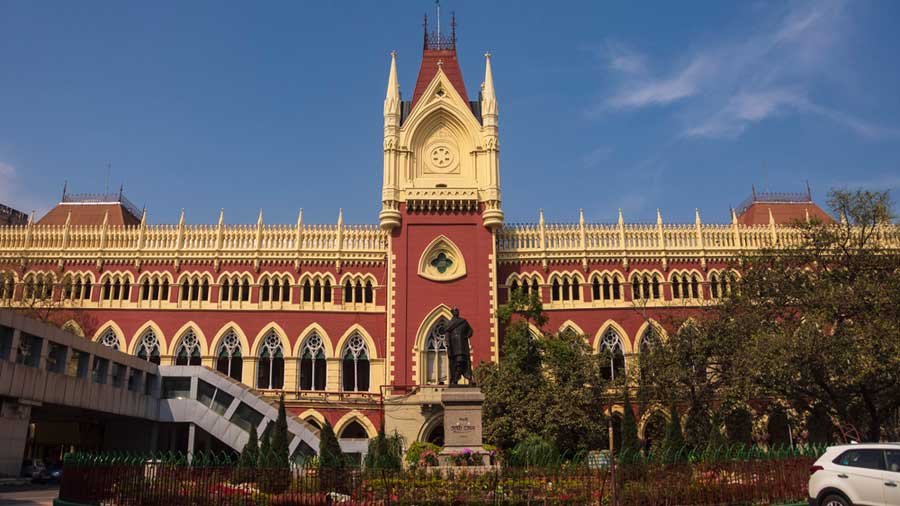
Calcutta High Court Becomes India’s Third High Court with a Dedicated IP Division
In a significant development for intellectual property (IP) law in India, the Calcutta High Court has become the third High Court in the country to establish a specialized division dedicated to hearing IP cases. This follows the footsteps of the Madras High Court and Delhi High Court, which already have designated benches to address matters related to intellectual property. The establishment of this new division comes after the notification of the final IP rules by the Calcutta High Court, with the specialized IP bench expected to begin hearing cases in November 2023.
The introduction of this specialized IP bench is an essential step forward for the efficient handling of IP matters, especially after the abolition of the Intellectual Property Appellate Board (IPAB) in 2021, which resulted in the transfer of several pending IP cases to the High Courts. With Calcutta High Court’s original jurisdiction allowing it to hear commercial suits, including IP disputes, the formation of a dedicated IP division is expected to streamline the litigation process, reduce backlogs, and ensure that cases are heard by judges with specialized expertise in IP law.
Historical Context: Calcutta High Court and IP Jurisdiction
The Calcutta High Court, established in 1862, is India’s oldest High Court and one of the few courts in the country that holds original jurisdiction to hear commercial disputes, including IP matters. This means that parties can file commercial suits, such as those related to intellectual property rights, directly in the High Court without first approaching a lower court.
However, despite its long history and important role in handling commercial litigation, a dedicated IP division had not been previously established at the Calcutta High Court. With the recent notification of the IP rules and the impending creation of a specialized bench, the High Court is now better positioned to handle the growing volume of IP disputes, which have surged in recent years due to technological advancements and the increasing importance of intellectual property in India’s economy.
The Abolition of the IPAB and Its Impact on IP Litigation
The Intellectual Property Appellate Board (IPAB) was abolished in 2021 as part of the Indian government’s effort to streamline the dispute resolution process and reduce redundancy in tribunal systems. The IPAB was responsible for hearing appeals on matters related to trademarks, patents, copyrights, and other forms of intellectual property, but its dissolution led to the transfer of pending cases to High Courts, including the Calcutta High Court.
The abolition of the IPAB left a significant gap in the handling of IP cases, with many stakeholders expressing concern about delays and backlog in the High Courts, which had to take on a large volume of cases previously handled by the appellate board. As a result, the creation of a dedicated IP division at the Calcutta High Court is seen as a critical measure to ensure that these cases are resolved efficiently by judges with specialized knowledge in IP law.
The Establishment of the IP Division: Key Developments
After the notification of the draft IP rules in 2023 and subsequent deliberations among various stakeholders, the final rules have been notified, setting the stage for the official commencement of the specialized IP bench at the Calcutta High Court. The dedicated division for hearing IP cases will officially start functioning in November 2023, after the High Court reopens following the Puja vacation.
The inauguration of the new IP division is a landmark moment for the Calcutta High Court, as it will allow the court to prioritize IP matters and ensure that they are dealt with in a swift and specialized manner. The division will bring together judges who have expertise in IP law, allowing them to deliver well-examined verdicts that are informed by a deep understanding of the complexities involved in intellectual property disputes.
The Need for Specialized IP Benches: Addressing the Growing Demand for IP Expertise
The creation of specialized IP divisions in Indian High Courts reflects the increasing importance of intellectual property in today’s global economy, particularly in areas such as technology, pharmaceuticals, media, and entertainment. As companies continue to innovate and invest in intellectual property assets, the need for efficient and informed judicial mechanisms to protect these assets has become more pressing.
The establishment of a dedicated IP bench at the Calcutta High Court addresses several key challenges:
- Specialized Expertise: Intellectual property law is a highly specialized field that requires in-depth knowledge of national and international legal frameworks. Judges with expertise in IP law are better equipped to handle complex cases involving patents, trademarks, copyright, and other forms of IP, leading to more informed and balanced rulings.
- Efficiency and Speed: With a dedicated IP division, the court can prioritize IP cases, reducing delays in litigation and ensuring that cases are heard in a timely manner. This is especially important given the commercial and economic impact of IP disputes, where prolonged litigation can lead to significant financial losses for the parties involved.
- Reduction of Backlogs: The transfer of IP cases from the IPAB to the High Courts created a substantial backlog, with cases being distributed among judges based on their general roster. A specialized division will alleviate this burden by focusing exclusively on IP matters, ensuring that cases move through the system more quickly.
- Consistency in Rulings: By concentrating IP cases within a specialized bench, there is greater potential for consistency in judicial interpretations of IP law. This creates more predictable legal outcomes for businesses and innovators, who can better understand the legal landscape and plan their strategies accordingly.
Broader Implications for IP Litigation in India
The establishment of a specialized IP division at the Calcutta High Court has broader implications for IP litigation in India, particularly in light of the country’s efforts to become a global hub for innovation and intellectual property. The move is expected to:
- Strengthen IP Protection: With faster and more informed adjudication of IP cases, businesses and individuals can have greater confidence in the protection of their intellectual property rights, which is crucial for fostering innovation.
- Attract Investment: A strong and efficient IP enforcement regime is critical for attracting foreign direct investment (FDI) in sectors such as technology, pharmaceuticals, and manufacturing. The creation of specialized IP benches in High Courts sends a positive signal to international investors that India is serious about protecting intellectual property.
- Encourage Innovation: By creating a more favorable environment for intellectual property protection, the judiciary can play a pivotal role in encouraging domestic innovation. Indian startups, entrepreneurs, and inventors will benefit from the certainty and speed offered by specialized IP courts, helping them safeguard their innovations and pursue commercialization more confidently.
A Promising Future for IP Law in India
The decision of Calcutta High Court to establish a dedicated division for hearing IP cases marks an important step in the evolution of intellectual property law in India. As the country continues to embrace its role as a leader in global innovation, the need for robust IP enforcement mechanisms will only grow. By following the path of the Madras and Delhi High Courts, the Calcutta High Court has taken a crucial step toward ensuring that intellectual property disputes are resolved efficiently, fairly, and consistently.
This development not only strengthens India’s legal framework for IP protection but also enhances the credibility of the country’s judicial system on the global stage. As the first dedicated IP bench in Eastern India, the Calcutta High Court is poised to become a key player in shaping the future of intellectual property rights in the region and beyond.
For businesses, innovators, and legal professionals alike, the creation of the specialized IP division offers new opportunities for timely resolution of IP disputes and paves the way for further judicial reforms in India’s dynamic IP landscape.






